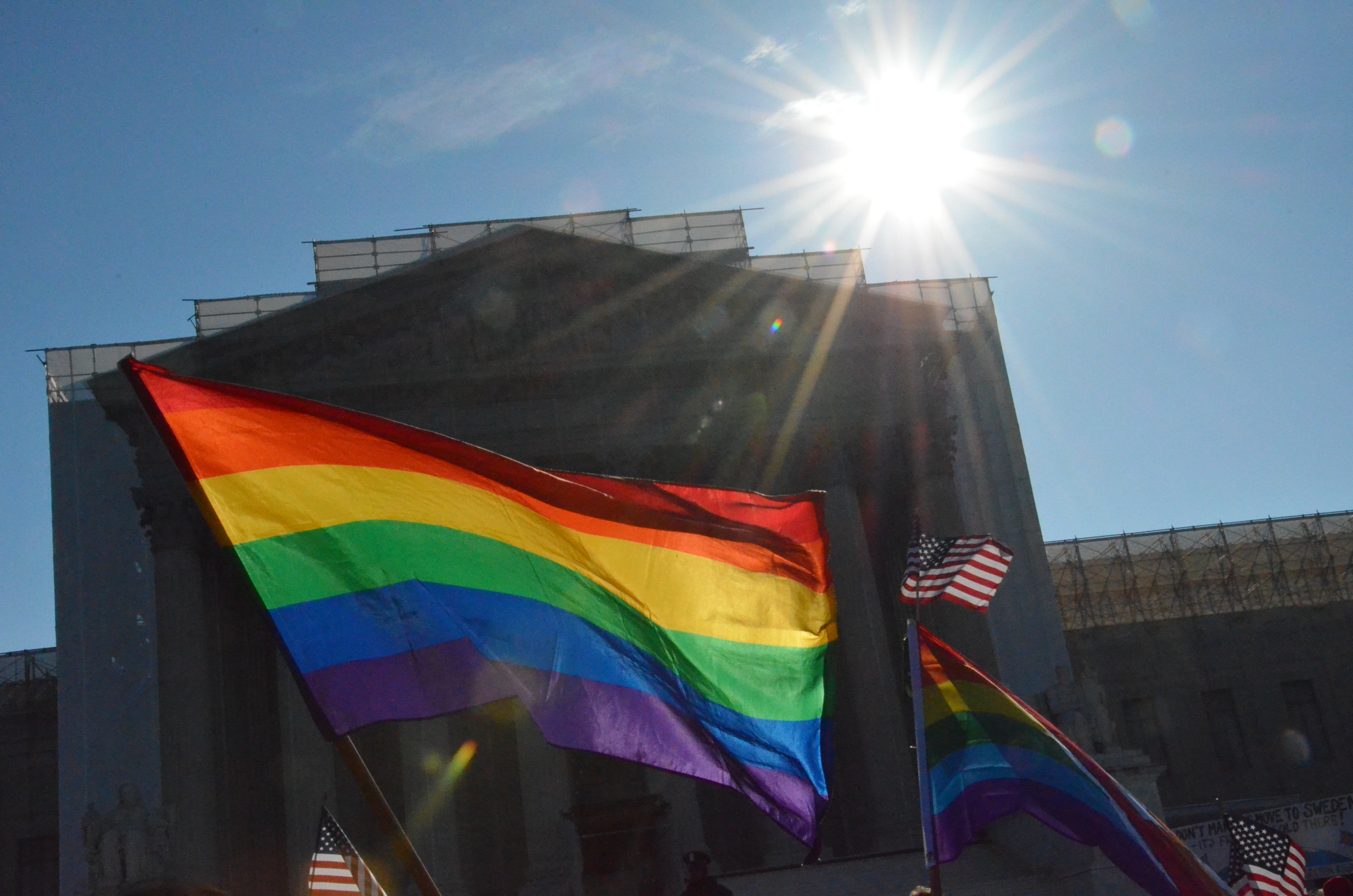A federal judge has declared Florida’s ban on same-sex marriage unconstitutional, joining judges across the country who have sided with gay couples wishing to tie the knot.
U.S. District Judge Robert L. Hinkle in Tallahassee ruled that the ban added to Florida’s constitution by voters in 2008 violates the 14th Amendment’s guarantees of equal protection and due process. Hinkle issued a stay delaying the effect of his order, meaning no marriage licenses will be immediately issued for gay couples. That also means gay couples legally married in other states will not immediately have their marriages recognized in Florida.
Hinkle, an appointee of President Bill Clinton, compared bans on gay marriage to the long-abandoned prohibitions on interracial marriage and predicted both would be viewed by history the same way.
“When observers look back 50 years from now, the arguments supporting Florida’s ban on same-sex marriage, though just as sincerely held, will again seem an obvious pretext for discrimination. To paraphrase a civil rights leader from the age when interracial marriage was struck down, the arc of history is long, but it bends toward justice.”
Judge Robert L. Hinkle
Gay rights have long been a contentious issue in Florida, a politically complex swing state where the northern counties tend to lean Republican like their Deep South neighbors and parts of South Florida are reliably Democratic. In the 1970s, singer and orange juice spokeswoman Anita Bryant lobbied to overturn a Dade County ordinance banning discrimination against gays, though the protections were later reinstated.
Florida Attorney General Pam Bondi, a Republican, has appealed previous rulings striking down the ban, which were issued earlier this year in Broward, Miami-Dade, Monroe and Palm Beach counties. Hinkle’s ruling allows time for appeals in the federal case. Bondi wants the Florida cases to remain on hold pending a definitive national ruling on gay marriage by the U.S. Supreme Court.
“The U.S. Supreme Court, they need to decide this case, they are going to decide this case, hopefully sooner than later so we will have finality. There are good people on both sides of this issue and we need to have finality for everyone involved.”
Attorney General Pam Bondi
Gay marriage proponents have won more than 20 legal decisions against state same-sex marriage restrictions since the U.S. Supreme Court invalidated the federal Defense of Marriage Act last year.
On Wednesday, the Supreme Court delayed an appeals court decision that would end Virginia’s gay marriage ban and, in January, the justices did the same thing in a same-sex marriage case in Utah. The 6th U.S. Circuit Court of Appeals in Cincinnati recently heard arguments in six same-sex marriage cases from Michigan, Ohio, Kentucky and Tennessee.
The latest Florida ruling came in a pair of lawsuits brought by gay couples seeking to marry in Florida and others who want to force Florida to recognize gay marriages performed legally in other states. Currently, 19 states and the District of Columbia permit same-sex marriage.
The American Civil Liberties Union of Florida, which represented some of the gay couples, said the tide of rulings makes legal same-sex marriage in Florida appear inevitable.
“We’re very pleased to see the ban held unconstitutional in such unequivocal terms so that all Florida families will soon finally have the same protections,”
Daniel Tilley, ACLU staff attorney
Hinkle did add one wrinkle in his decision: he said the delay on marriages should have no effect on a proposed change to the death certificate of Carol Goldwasser, who was legally married in New York in 2011 to Arlene Goldberg before Goldwasser died earlier this year.
Goldberg, according to the ruling, has been unable to obtain Social Security survivor benefits because of Florida’s refusal to recognize their marriage, which could force her to sell her house. Hinkle said the amended death certificate showing the couple as spouses should be issued by Sept. 22, or 14 days after officials receive all the required information.
“There is no good reason to further deny Ms. Goldberg the simple human dignity of being listed on her spouse’s death certificate. Indeed, the state’s refusal to let that happen is a poignant illustration of the controversy that brings us here.”
Judge Robert L. Hinkle



